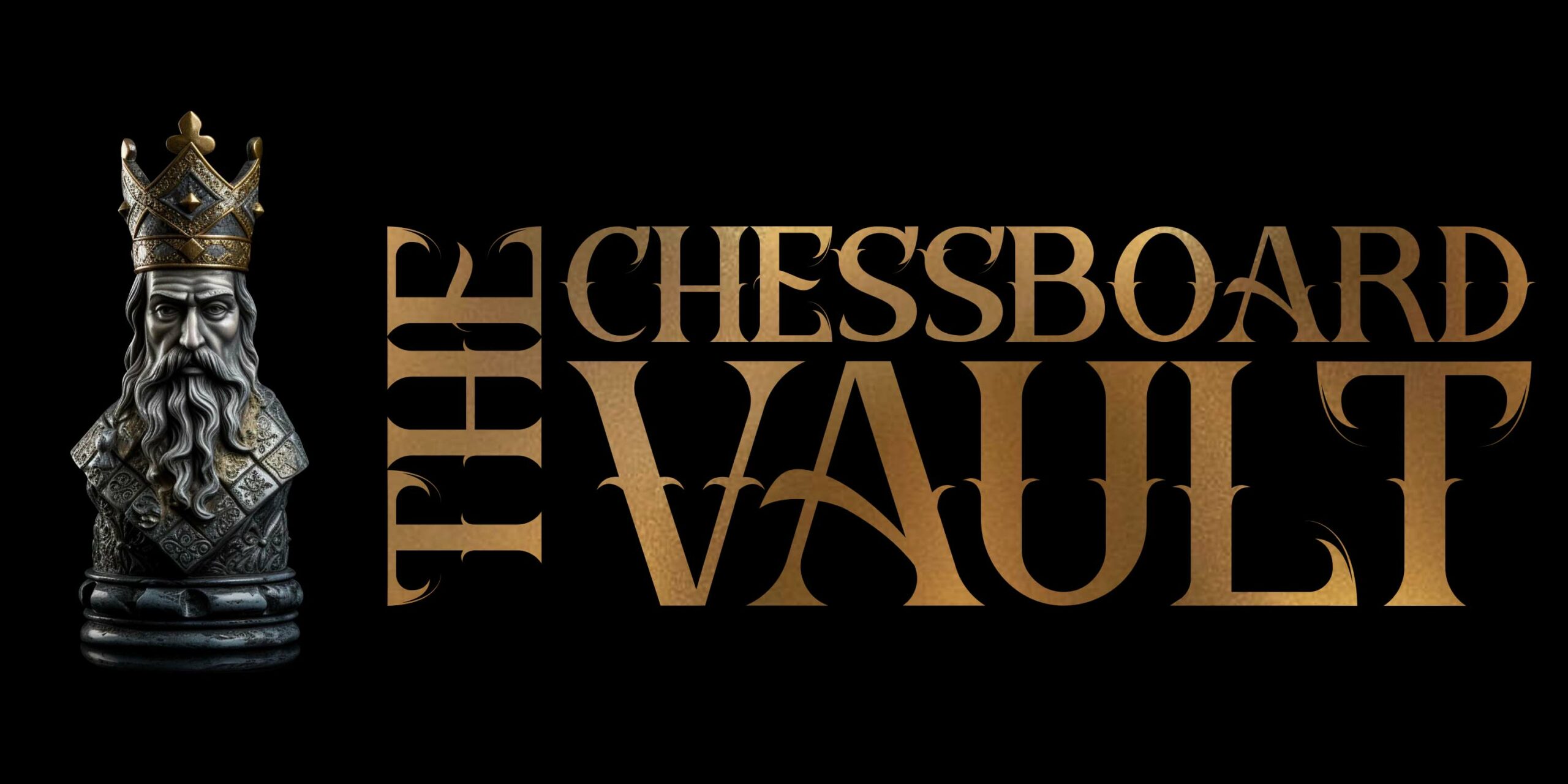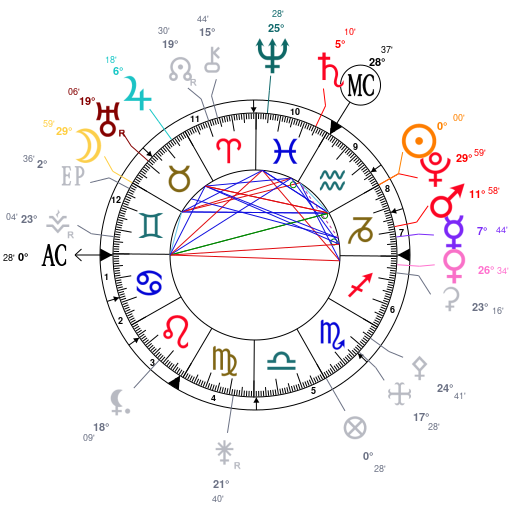
The A has just entered the Sign of the k.
The ruler of this sign is Uranus, the innovator who is recognized by the cry “Eureka! Uranus likes to surprise (himself if need be) and invent all sorts of things, from small practical details to grandiose, revolutionary creations. – because he’s not only a brilliant thinker, he never stops thinking.
Aquarians are players of thought. Of all the twelve Signs of the Zodiac, they are the least likely to sink into emotionalism, because they always know how to stand back and keep an overview from a distance. They know how to evade adversity with totally unexpected moves. What’s more, Uranus acts and calculates with frightening speed. And this suddenness doesn’t leave anything to chance!
Nick Pert won the British Chess Championship in 2021. But in 2022, he only came second. The Englishman did, however, score one point more than the previous year, as he recounts in the video.
A typical Aquarian as a chess opponent represents, to put it cautiously, a challenge. No other sign has produced so many Grand Masters: over two hundred to date, a veritable army of Aquarian GMs! What makes them so successful is not so much the ambition to win at all costs, but rather a thirst for research and the irrepressible pleasure of analysis.
Markus Ragger, the only Austrian ever to reach a FIDE ranking above 2700 Elo, was of course born in the Sign of Aquarius (on February 05).
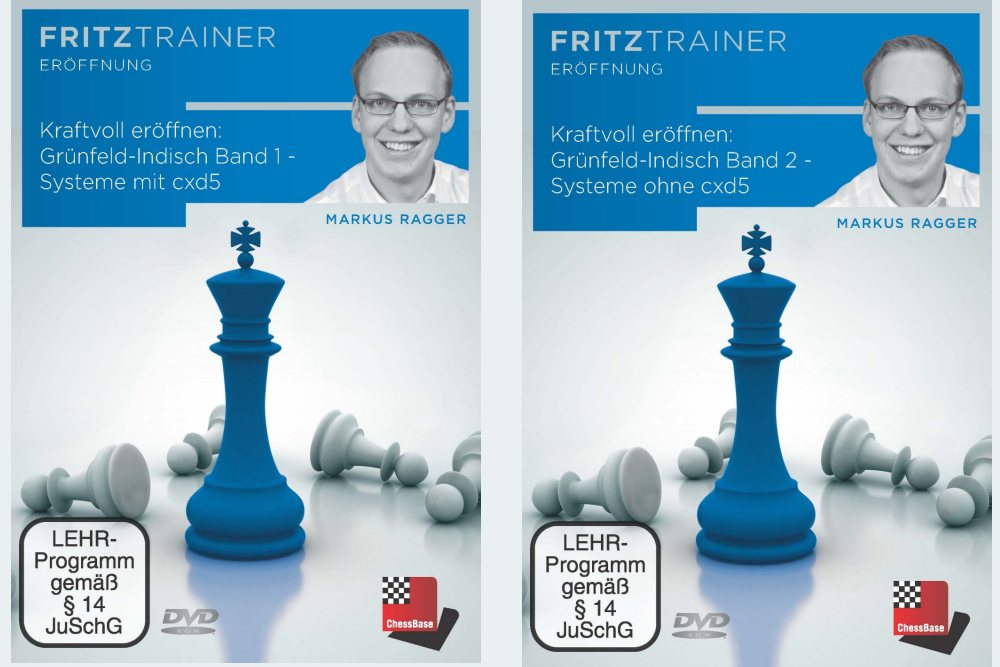 Markus Ragger has already created two Fritztrainers for ChessBase. Many of the Austrian’s fans are looking forward to his next volumes!
Markus Ragger has already created two Fritztrainers for ChessBase. Many of the Austrian’s fans are looking forward to his next volumes!
The true Aquarian relaxes by performing mental acrobatics, always coming up with something new – unless he successfully upsets the established order by drawing inspiration from the Ancients. He delights in intellectual penetration, research to the end. His thinking is completely unconventional and follows its own path without a hitch.
People born between January 20 and February 19 apparently start turning their brains earlier than most of their fellows. Of course, almost all great chess players were initiated in childhood. But it’s safe to assume that American Abhimanyu Mishra, born on February 05 and heading towards his 15th birthday, learned chess before he could even walk! At the age of nine, he became the youngest national champion of the United States of America, and a year later, at the age of 10 years, 9 months and 3 days, he became the youngest International Master, then, in June 2021, at 12 years, 4 months and 25 days, the youngest Grand Master of all time.
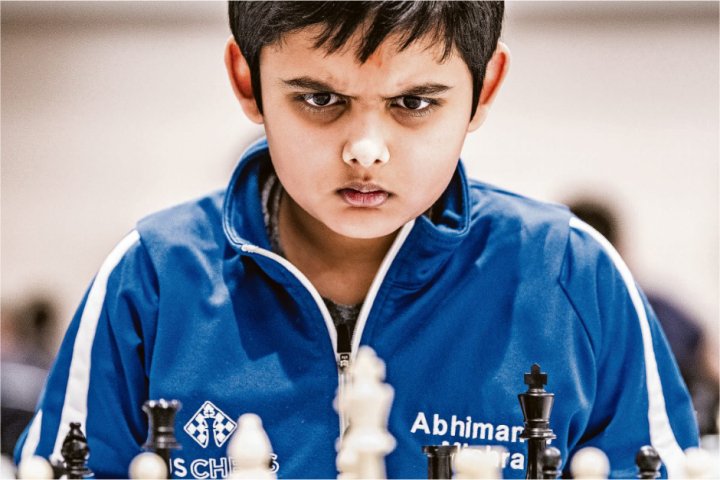 Shortly after receiving his GM title, Abhimanyu Mishra recorded an Endgame Magic Show with Dr. Karsten Mueller. | Photo: David Llada.
Shortly after receiving his GM title, Abhimanyu Mishra recorded an Endgame Magic Show with Dr. Karsten Mueller. | Photo: David Llada.
Of course, Aquarians also compose, and they write chess books. Honorary Grandmaster Rudolf Teschner, born on February 16, wrote – among many other such books – the classic Eine Schule des Schachs in 40 Stunden (“A chess school in 40 hours”), greeted by a “petty good” from Bobby Fischer!
In 1956, at the 23rd USSR Championship in Leningrad, three Russian Aquarians shared first place. They were GM Mark Taimanov, born on February 07, then aged thirty, chess legend (and future world champion from 1969 to 1972) Boris Spasski, born on January 30, aged nineteen, and Youri Averbakh, born on February 08, aged thirty-four.
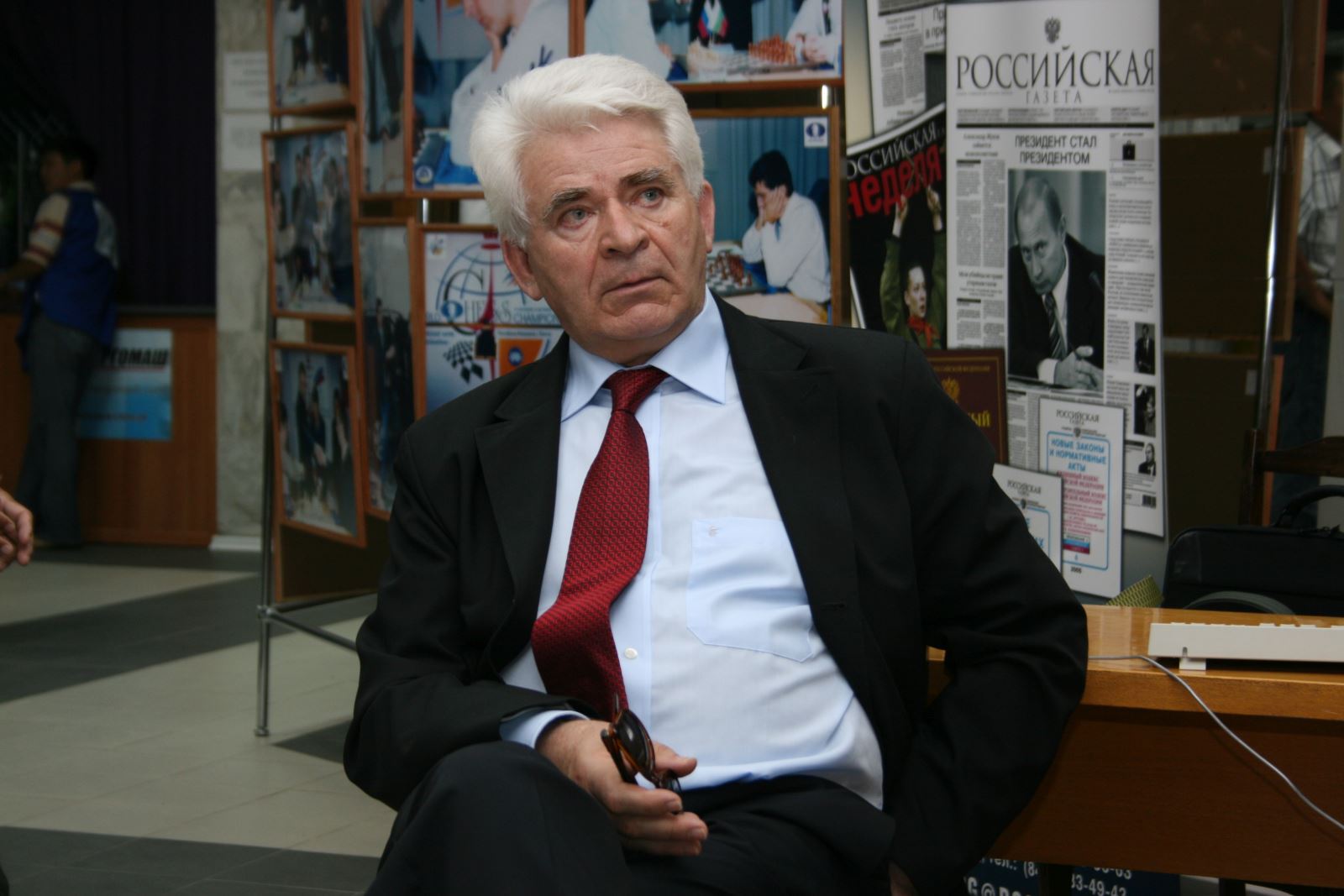 a photo of Boris Spassky, in an article in “Frederic’s Mates”. The corresponding video is available here:
a photo of Boris Spassky, in an article in “Frederic’s Mates”. The corresponding video is available here:
There’s a lot more to say about each of these three men.
About Taimanov, for example – keyword ‘inventive Aquarian’ – that he devised, among other exciting lines in Sicilian, the variant that bears his name. Russian GM Evgeny Sveschnikov, born on February 11, who made his name particularly as a chess theorist, took the ♟e a step further, giving rise to the Sveschnikov variant.
Averbakh died in May 2022, aged one hundred. He was the oldest living Grand Master to date. This passionate endgame had declared that he had never wanted to become world champion, as he was more of a seeker than a fighter. A typical Aquarian characteristic, as we saw earlier.
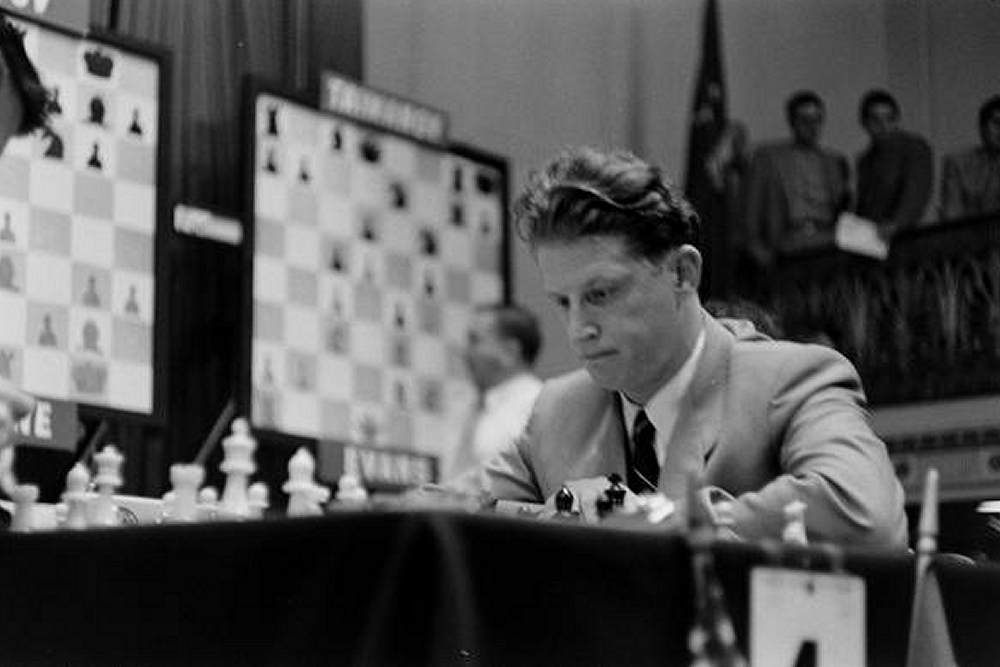 Yuri Averbakh died at the age of 100. The article on his 100th birthday is available here. herePhoto: Averbakh at the USA vs. USSR match, New York City, 1954 (via D. Griffith).
Yuri Averbakh died at the age of 100. The article on his 100th birthday is available here. herePhoto: Averbakh at the USA vs. USSR match, New York City, 1954 (via D. Griffith).
Finally, there’s probably not much to say about the great Spasski, whom even non-chess players know. After a grandiose career, it was a typically irregular, unpredictable and brilliant Pisces that tripped him up. But that’s another story, and we’ll come back to it next month!
Famous chess players with the A natal in k:
Prusikin, Michael – 19.01.1978
Rodshtein, Maxim – 19.01.1989
Smirin, Ilia – 21.01.1968
Pert, Nicholas – 22.01.1981
Bacrot, Étienne – 22.01.1983
Mecking, Henrique – 23.01.1952
Yakubboev, Nodirbek – 23.01.2002
Wahls, Matthias – 25.01.1968
Bok, Benjamin – 25.01.1995
Ólafsson, Friðrik – 26.01.1935
Sarana, Alexey – 26.01.2000
Sargsyan, Shant – 27.01.2002
Piket, Jeroen – 27.01.1969
Smirnov, Anton – 28.01.2001
Dlugy, Maxim – 29.01.1966
Spassky, Boris V. – 30.01.1937
Dreev, Aleksey – 30.01.1969
Ju Wenjun – 31.01.1991
Kalinitschew, Sergey – 03.02.1956
Vitiugov, Nikita – 04.02.1987
Gunina, Valentina – 04.02.1989
Ragger, Markus – 05.02.1988
Andreikin, Dmitry – 05.02.1990
Tabatabaei, M. Amin – 05.02.2001
Mishra, Abhimanyu – 05.02.2009
Taimanov, Mark – 07.02.1926
Averbakh, Yuri L. – 08.02.1922
Gipslis, Aivars – 08.02.1937
Gulko, Boris – 09.02.1947
Avrukh, Boris – 10.02.1978
Sveshnikov, Evgeny – 11.02.1950
Jussupow, Artur – 13.02.1960
Tiviakov, Sergei – 14.02.1973
Eliskases, Erich – 15.02.1913
Fridman, Daniel – 15.02.1976
Teschner, Rudolf – 16.02.1922
Fedoseev, Vladimir – 16.02.1995
